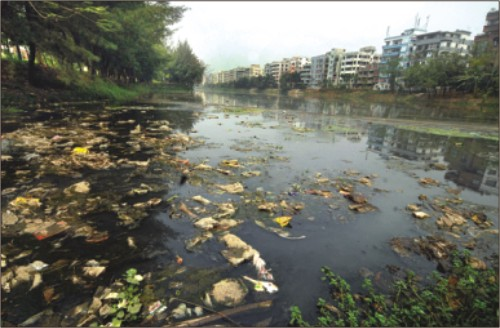By Ranjan Kumar Amritnidhi,Delhi

“Under CSE’s guidance, KPSS will continue to do monitoring in Pali on a monthly basis. The results of the monitoring will be passed on to the government, If the existing CETPs are not doing their job, we need to explore other technologies that are capable of dealing with all toxic elements,heavy metals and other pollutants,”
says S V Suresh Babu, coordinator of CSE’s river pollution team.
Today Public Meeting releases results of the monitoring programme initiated by Centre for Science and Environment (CSE), New Delhi and Sri Kisan Paryavaran Sangharsh Samiti (KPSS),Pali, Rajasthan.
Finds high levels of arsenic and zinc in the Bandi and in groundwater Launches CSE’s nation-wide ‘Pradushan Mukti (Freedom from Pollution)Network’,which will extend the monitoring programme to other communities across India .
It was on August 22 this year that Centre for Science and Environment (CSE) and Sri Kisan Paryavaran Sangharsh Samiti (KPSS) had initiated a unique experiment in this textile town, on the banks of the Bandi river. The community water pollution monitoring program they had kicked off has started bearing fruit. The two organizations came together again today in Pali, at a Public Meeting, to share their experiences.
On this occasion, CSE also announced the extension of the program to other communities fighting pollution across the nation, many of whom attended today’s meeting. CSE is calling this initiative ‘Pradushan Mukti (Freedom from Pollution) Network’.
The Public Meeting was attended by Gaj Singh, chairperson, Jal Bhagirathi Foundation; Manvendra Singh, member of parliament, Barmer; Mahavir Singh Sukarlai, secretary, KPSS; Rajendra Singh, secretary, Tarun Bharat Sangh; and Sunita Narain, director, CSE. Pollution fighters and activists from Ankleshwar, Vapi and Vadodara (Gujarat); Meerut and Kanpur (Uttar Pradesh); Kolhapur (Maharashtra); Jaduguda and Bokaro (Jharkhand); Ludhiana (Punjab); and Udaipur, Bhilwara and Jaipur (Rajasthan) also attended.



